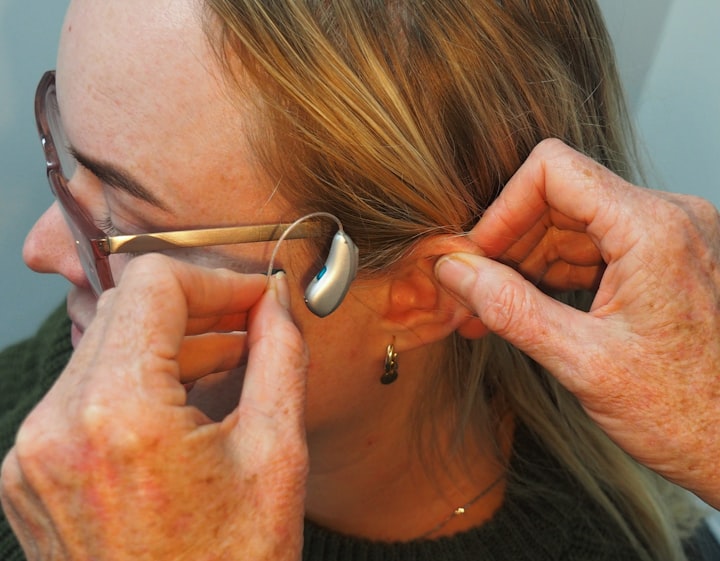The 1 Goal That Helps Me (Routinely) Get 8 Hours of Sleep
Steal it from me if you’d like. I don’t mind.

It’s not that I enjoy staying up late. Often, whatever I’m watching is boring and I’ve long since run out of things to scroll through. I’m not having fun laying on the couch with eyes half-open, mouth agape. It’s just that… well… after a long day, the last thing I want to do is stand up and put in more effort. Even if that effort is as minor as taking out my contacts or brushing my teeth. It’s too much.
And so, fully aware of the decision I’m making, and knowing full-well that it’s the wrong decision to make, I remain on the couch. Long past the appropriate time to go to bed. This is how most of my nights used to go. Internally fighting with myself, desperately trying to muster the strength to stand up and prepare for bed.
Getting eight hours of sleep was a rarity. Getting nine was unheard of. More often than not, I’d find myself averaging six to seven. Not terrible, but not good either. I wanted more sleep. I needed more sleep. But nothing was working. I tried holding myself accountable each day with a spreadsheet. Didn’t work. I read all the important books on habit-breaking and habit-building. Worked for a little… until the shininess wore off. Then it was back to late nights once again.
My Sleep Goal
Looking at my life today, I now routinely get eight hours of sleep. In fact, I get eight hours of sleep at least four nights a week and have done so for the past four months. Which, hey, four months isn’t anything crazy, but it destroys my previous record of… I’m not even sure… maybe a week?
So how did I, a habitual night-owl, start actually getting more sleep? I set a goal. First, I’ll share what that goal is. Then, I’ll explain how you can translate it into your own life. That said, here is my sleep goal:
At least four nights a week, go to sleep (ie. close my eyes) with eight hours and 40 minutes until my alarm is set to go off.
Let’s break that down. Notice how I said, “At least four nights a week.” I know that if I were to set the goal to five, six, or even seven days a week, it would feel too restrictive and I would thus quit early on. But at four, it ensures that I get eight hours of sleep most of the time. It also gives me room to go that fifth, sixth, or seventh day if I so choose.
Why My Goal Is Set Up That Way
Next, I say, “… go to sleep (ie. close my eyes) with eight hours and 40 minutes until my alarm is set to go off.” For many years, I would go to sleep wearing a sleep tracker. It would monitor periods where I was awake, in light sleep, and in deep sleep. From all that data, I noticed a trend. For whatever reason, I had about 40 minutes each night of non-sleep time.
That could include midnight bathroom breaks, tossing and turning, time spent actually falling asleep, etc. So if I closed my eyes with eight hours until my alarm was set to go off, I would really only get seven hours and 20 minutes of sleep. Knowing that I wanted a full eight hours, I needed to factor that wake-time into the equation. Thus, eight hours and 40 minutes.
Finally, observe how I don’t say, “Get eight hours of sleep each night.” Why? Because it’s out of my control. Maybe my neighbors are loud and wake me up. Or maybe I have a bad dream that keeps me up for an hour in the middle of the night. I can’t control the exact amount of sleep I get, but I can control the amount of time I give myself. So even if my sleep gets interrupted, so long as I closed my eyes when I said I would, it counts. I did everything within my control. Most of the time, that means I get the eight hours I was after.
Why It’s Finally Stuck
Something to consider is why now? Why, after all my efforts, am I finally able to get more sleep on a consistent basis? There are likely a couple factors:
- My daughter wakes up early whether I get one hour of sleep or 15. So I need to be on it.
- Because I talk about goals for a living, I’m biased and feel I should be “crushing” each one I set.
Both valid points. I’d like to think that despite them though, the reason that this time around has stuck more so than in the past is because of the system I have in place. Unlike with habit-building or random spreadsheet usage, I have a specific goal-success process that I follow for all of my goals.
With each goal I set, I apply the same formula. Because of this, if I’m able to achieve one goal, all other goals are equally achievable. In other words, the methodology I use to:
- Write a new article each day;
- Go on a date with my wife once a month;
- Complete two books a month;
- And the rest of my ten+ goals, is the same.
The System Behind the Goal
Yes, having a specific goal related to sleep is powerful. But it would be worthless if I didn’t have a structure already in place. So now that you know the goal to set, it’s a matter of creating your system. Here’s what I recommend doing. *There’s more to goal success than what I’m about to describe, but this is a good starting point.
First, have a single home where you keep track of all your goals. I personally use something called a goal tracker to do this. On it, I record each goal, the reason I’m pursuing it, any notes, and all progress that I make towards it. You can learn more about my goal tracker here.
Next, you need to decide when you will do that goal. Plan out your week ahead of time and decide what days you will go to bed at that eight-hour time and which days you won’t. If you want to keep it more loose and spontaneous, you can play it by ear. But don’t forget about it. This leads me to the third and final point.
Review your goal tracker each evening. Go through it and update any goals that you worked on. Remind yourself of goals that still need to be tackled and, once again, plan out when you will work on them. Doing this prevents you from “forgetting” about them. Instead, you are constantly reminded about your sleep goal, your exercise goal, your gratitude goal, etc. And with increased awareness should come increased action.
Moving Forward with Eight Hours of Sleep
The goal is only as important as the system that fosters it. Without that system, the goal is pointless. Therefore, when it comes to your goal structure, ensure that you:
- Keep track of all your goals in a single place using a goal tracker.
- Plan out when you will work on each of your goals in a given day and week.
- Revisit your goal tracker each evening. Update what you worked on and decide when you will act on the rest.
When it comes to the actual sleep goal itself, you’ll also want to ensure that you:
- Give yourself room to be flexible. Don’t burn out by forcing yourself to go seven days a week at the start.
- Are aware of how much sleep you’re actually getting (like me with my sleep tracker).
- Make the goal within your control.
If I can manage to get more sleep than ever before, you certainly can too. It will take some effort and likely some experimentation on your part, but it is possible. Remember, I tried and tried and tried for years to no avail. Now I know what works. Your goal may not end up looking exactly like mine, but it’s a good place to start.
Sleep well.
Get My Goal Success Ebook & Checklist
Download my Ebook & Checklist to learn the eight things you can do for goal success. → Get your free copy right here.
About the Creator
Corey Fradin
Founder of QuickBooost, a blog that helps you achieve your goals and a fulfilling life. | https://quickbooost.com/ebook/






Comments
There are no comments for this story
Be the first to respond and start the conversation.